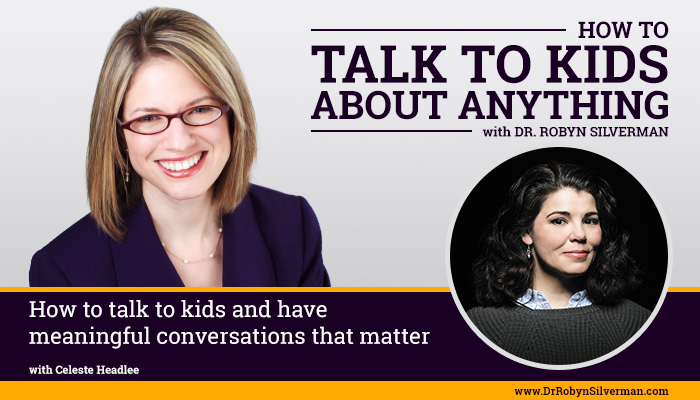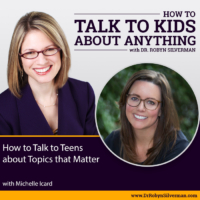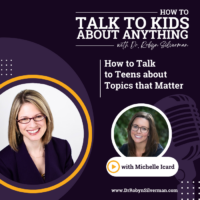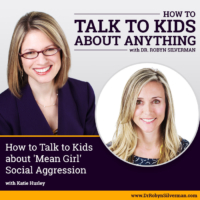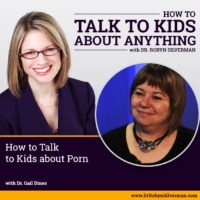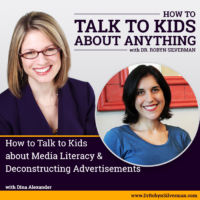Podcast: Play in new window | Download
Subscribe: Apple Podcasts | RSS | More
How to Talk to Kids about having meaningful conversations that matter
This podcast will focus on how to have meaningful conversations that matter with kids. What questions should we ask? What are the top mistakes parents make when talking with their kids? What are some great tips to ensure good conversations, strong connections and that ultimately, the conversations we have with our kids make a difference? We talk to Celeste Headlee this week to get some answers.
Special Guest: Celeste Headlee
Celeste Headlee is the host of “On Second Thought” at Georgia Public Broadcasting in Atlanta and has been a host and correspondent for NPR and PRI since 2006. She is the author of the book, We Need to Talk: How to Have Conversations That Matter (Harper Wave, September 19), a practical guide to the lost art of conversation. Celeste’s TEDx Talk sharing 10 ways to have a better conversation was listed as one of the most watched TED Talks in 2016 (CNBC) and named the #1 must-watch TED Talk by Glassdoor (with over 11 million total views to date.)
Being able to have productive conversations is a skill—and it’s a skill, built on a series of other skills from being assertive to listening to ensuring that we were heard correctly and yes, that we have heard and understood correctly what others are saying. These days, with so much communication relying on electronic screens and emojis, the art of conversation may be at risk. And that’s a scary thought. To put ourselves in the frame of mind of taking in the importance of good conversation skills, just think of what happens when poor communication happens—people get the wrong idea, mistakes are made, feelings are hurt and stuff does not get done in the right way. And when conversation is clear and strong and good- progress is made, we feel understood and connected- truly, it can make all the difference.
The podcast provides:
- Tips: How to have the best conversations with the kids, how to train your brain to be fully present and how to truly connect.
- Scripts: How questions can help begin conversation and even debate.
- The biggest mistakes people make in conversation.
- How to really listen in conversation.
- Way to give your children agency during conversation.
Important Messages:
- You’re not going to have a good conversation if someone involved in the conversation is looking at his or her phone. Put the phone down.
- People are acknowledging that the phone is getting in the way of human conversation.
- Email is a terrible way to communicate. It’s not great from the sender’s perspective (in terms of getting your message across) and it’s not effective on the part of the receiver!
- Don’t repeat yourself! If you do, you are training your child to NOT listen the first time.
- Use the multi-sensory technique (see Dr. Dehra Harris’ podcast episode for more on this)
- Remember the Steven Covey quote and apply it- ‘Most people do not listen with the intent to understand; they listen with the intent to reply.’
- Why lecturing is counter-productive. Lecturing is not a conversation.
- Telling somebody something doesn’t teach them- experience is the best teacher.
- What works for us may not work for our children- let them have some agency and control.
- Don’t give unsolicited advice—even though that’s difficult!
- Don’t say- “I know how you feel.” You don’t! Let them tell you how they feel.
- Don’t condescend and allow your children to make choices.
- Don’t speak down to your children—and know that we have a lot to learn from your children.
- Neural coupling- when people are listening in an engaged way, minds can sync.
- Humans connect through voice. Don’t hand over communication to emojis.
- Rule of 4 back and forth- text, reply, text, reply, text, reply, text, reply. Need more? Pick up the phone!
- We’ve handed over all communication to devices- but you really need to ask yourself, what does this devise do better than me?
Notable Quotables:
- “You’re not going to have a good conversation if the other person is looking at his or her phone…Some of the best research we have shows that even the phone’s presence is distracting to the mind. The best thing to do is to put it away.”
- “Even kids acknowledge that their phones are making them unhappy in some cases—interfering with their relationships. They acknowledge that they’re addicted.”
- “We have some good research about our behavior when we are on email or on instant message as opposed to in person. We are way ruder, less likely to negotiate or cooperate when writing an email or even on the phone than when we are in person. So possibly, there is a reason you wouldn’t say it to someone’s face!”
- “When they say you really need to be there for your kids they mean be there, really listening to them.”
- “Don’t forget how powerful questions are…your best tool to get your kids to talk to you is a well designed question…A simple, direct question starting with who, what, where, when, why or how.”
- “The number one biggest mistake we make in conversation is that we don’t listen.”
- “We got all that terrible advice we got to look someone in the eye and nod your head and say ‘uh huh, ’ is just teaching you how to pretend you are paying attention—and that’s totally unnecessary if you are paying attention!”
- “The best thing to do is to go into a conversation to learn instead of to educate.”
- If they ask for advice you can give it–but I think the same is true for kids or adults—no unsolicited advice!”
- “Probably one of the worse things someone could say is; ‘I know how you feel.’ But you don’t! Let them tell you. In those tough moments in people’s lives, they want to be heard. And if they have nothing to say? That’s okay! Have the strength inside yourself to be silence and be present without speaking.”
- “Invite your children into a conversation rather than forcing them into the conversation.”

